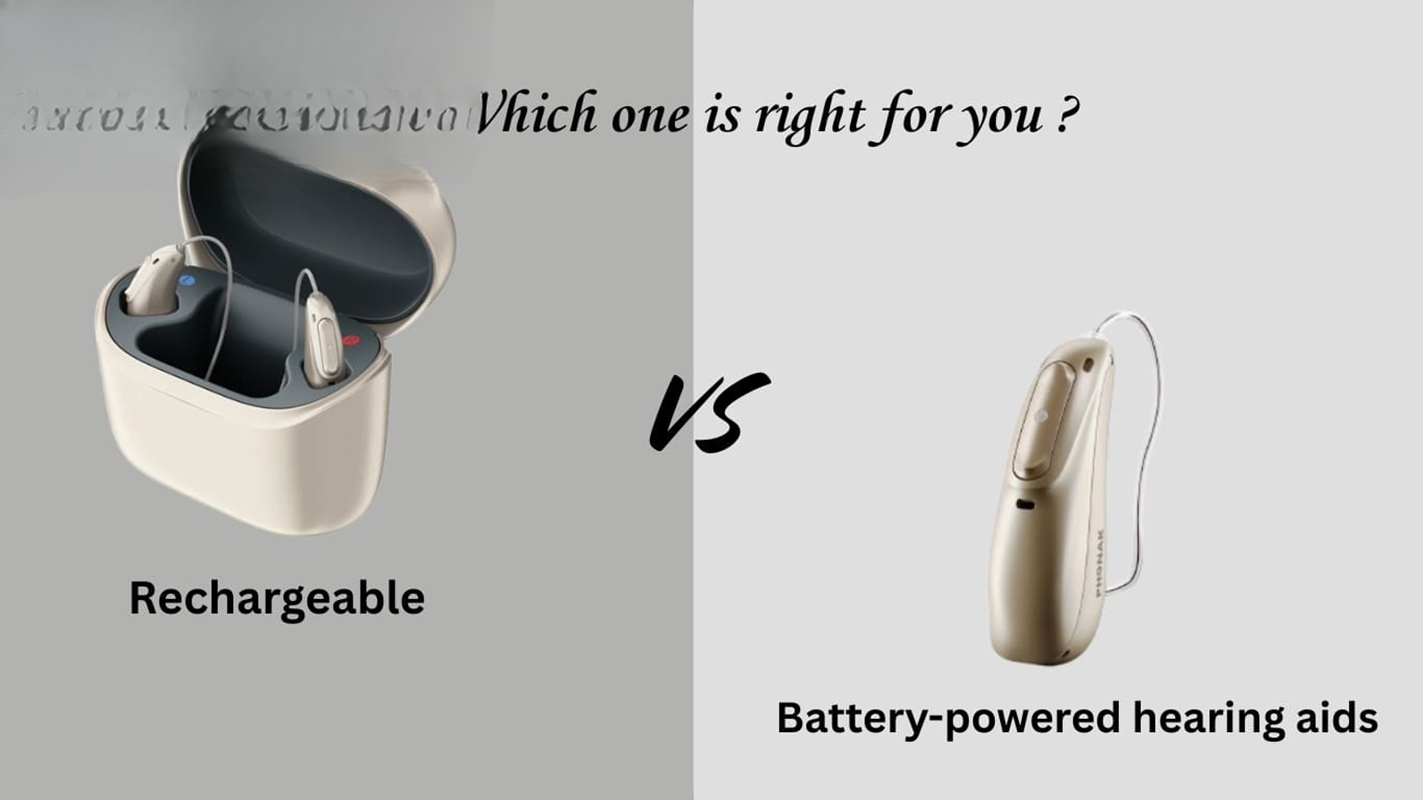
Buying a hearing aid? One of the first questions you’ll face is:
Should you go for rechargeable or battery-powered?
Each type has its own pros and cons. Let’s break it down in a simple, easy-to-understand way so you can make the right choice for your lifestyle, needs, and budget.
? Rechargeable Hearing Aids
These hearing aids come with built-in lithium-ion batteries — just like your smartphone. You place them on a charging dock overnight, and they’re ready to go in the morning.
✅ Pros:
Super Convenient – No more fumbling with tiny batteries.
Eco-Friendly – Good for the environment with less battery waste.
Saves Money Over Time – No need to buy replacement batteries regularly.
User-Friendly – Great for people with arthritis or poor vision.
All-Day Power – One full charge can last 24+ hours.
❌ Cons:
Higher Upfront Cost – But it balances out in the long run.
Needs Regular Charging – If you forget to charge, you might miss a day.
Battery Replacement Needs a Pro – After a few years, built-in batteries may need servicing.
? Battery-Powered Hearing Aids
These use small disposable zinc-air batteries. You’ll need to replace them regularly depending on how often you use your hearing aids.
✅ Pros:
Lower Initial Cost – More budget-friendly upfront.
No Charging Needed – Ideal for travelers or those without regular power access.
Easy Battery Swap – Just carry extras and replace anytime, anywhere.
Available Anywhere – Batteries are easy to find in stores and online.
❌ Cons:
Recurring Costs – Buying batteries frequently adds up.
Environmental Waste – Not as eco-friendly.
Tricky to Handle – Small batteries can be tough to manage.
Shorter Lifespan – Batteries may only last a few days to weeks.
? Which One Should You Choose?
Here's a quick guide to help:
| Choose This | If You... |
|---|---|
| ? Rechargeable | Prefer convenience, want less hassle, or have dexterity/vision issues. |
| ? Battery-Powered | Travel often, prefer lower initial cost, or don’t mind changing batteries. |
Pro Tip: If you're unsure, talk to a hearing specialist who can match your needs with the right hearing aid.
? Final Thoughts
Both rechargeable and battery-powered hearing aids are excellent options. The right one depends on how you live, what you need, and what fits your budget.
Want more help choosing the perfect hearing aid?
? Check our latest hearing aid prices















